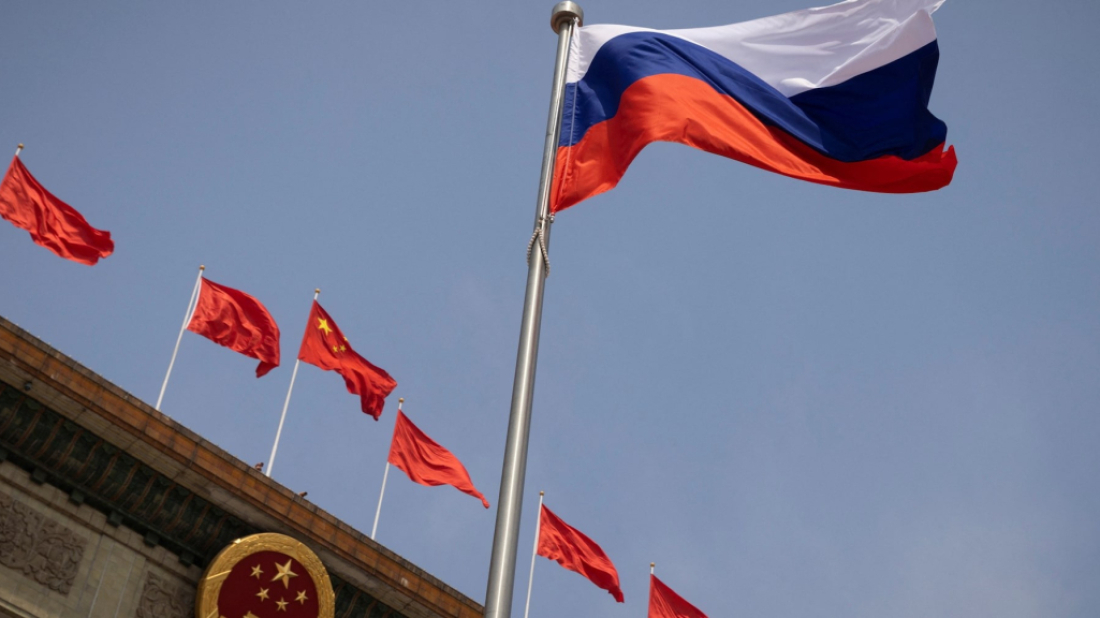Deadly Indonesia protests force u-turn on lawmakers' perks
Indonesia’s President Prabowo Subianto has announced the suspension of certain parliamentary perks, including a $3,000 monthly housing allowance, af...

Russian Foreign Minister Sergei Lavrov and his Chinese counterpart Wang Yi agreed in Beijing on Sunday to tighten coordination in forums from the United Nations to the G20, while reviewing prospects for ending the war in Ukraine and managing strained ties with the United States.
Meeting on the eve of a Shanghai Cooperation Organisation foreign-ministers’ gathering, the two men “emphasised the importance of strengthening close coordination” across multilateral bodies, Russia’s foreign ministry said in a statement.
Lavrov and Wang also “discussed relations with the United States and prospects for resolving the Ukrainian crisis,” according to the ministry, which gave no details of any peace initiative.
Moscow and Beijing declared a “no-limits” partnership in February 2022, just days before President Vladimir Putin launched his full-scale invasion of Ukraine.
Washington brands China its top strategic competitor and Russia its leading nation-state threat, a stance both governments dismiss as Cold-War thinking. Beijing has refused to condemn Russia’s invasion, instead calling for a ceasefire and talks while expanding trade that now covers more than 90 % of Russian oil exports, according to Chinese customs data.
Lavrov arrived in Beijing from North Korea, where Pyongyang last week pledged further support for Russia’s war effort. He is expected to press fellow SCO members—who include India and several Central Asian states—to back Moscow’s position on Ukraine when the bloc’s leaders meet later this year.
Analysts say the foreign-minister meeting highlights a deepening geopolitical alignment that could complicate Western efforts to isolate Russia.
“Beijing gains leverage over both Moscow and Washington by keeping the partnership warm, while the Kremlin gains diplomatic cover,” said Alexander Gabuev of the Carnegie Russia Eurasia Center.
The pair are likely to cross paths again at the BRICS summit in Kazan in October and at November’s G20 leaders’ meeting in Rio de Janeiro, where Western diplomats hope China might still press Russia to accept a negotiated settlement.
A powerful eruption at Japan’s Shinmoedake volcano sent an ash plume more than 3,000 metres high on Sunday morning, prompting safety warnings from authorities.
According to the German Research Centre for Geosciences (GFZ), a magnitude 5.7 earthquake struck the Oaxaca region of Mexico on Saturday.
The UK is gearing up for Exercise Pegasus 2025, its largest pandemic readiness test since COVID-19. Running from September to November, this full-scale simulation will challenge the country's response to a fast-moving respiratory outbreak.
A Polish Air Force pilot was killed on Thursday when an F-16 fighter jet crashed during a training flight ahead of the 2025 Radom International Air Show.
Indonesia’s President Prabowo Subianto has announced the suspension of certain parliamentary perks, including a $3,000 monthly housing allowance, after widespread protests left at least six people dead. T
A magnitude 6.0 earthquake struck southeastern Afghanistan near the Pakistan border late Sunday, the U.S. Geological Survey (USGS) reported.
Iran-backed Houthi rebels raided offices of the United Nations’ food, health, and children’s agencies in Yemen’s capital, Sanaa, on Sunday, detaining at least 11 personnel, reports said.
At least 23 people have died in the past 24 hours in Punjab province, Pakistan, after heavy monsoon rains triggered severe flooding, officials said.
Germany’s Merz: Ukraine war could last for a long time
You can download the AnewZ application from Play Store and the App Store.

What is your opinion on this topic?
Leave the first comment